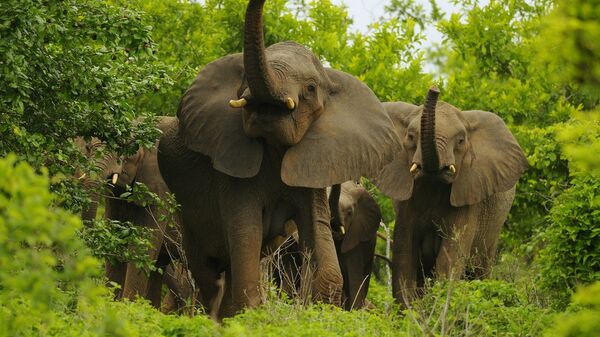“I would say 90% of the new cases we have found are old carcasses we previously did not locate,” Dimakatso Ntshebe, a regional wildlife director, said in a recent interview with Bloomberg. “However, a few are indeed new deaths. All recovered carcasses do not show signs of poaching.”
Last year, Botswana President Mokgweetsi Masisi lifted a hunting ban to prevent the 135,000 elephants in the country from damaging crops and sometimes trampling residents.
Carcass samples are also being sent to a laboratory in Zimbabwe to determine the cause of the deaths. However, the COVID-19 pandemic could cause delays in receiving testing results.
Ntshebe also warned that more elephant deaths could occur.
"We are still experiencing elephants dying in the Okavango Panhandle," the wildlife official said, also noting that tusks have been removed from the dead elephants.
"We have started removing the tusks in the dead elephants, and we have started burning the carcasses," Ntshebe said, reported Big News Network."We have started with those [carcasses], which are close to the villages, and those that are lying in the water. The idea is to burn as many carcasses as possible. However, we have a challenge since some of the carcasses are in areas which are difficult to reach."
The majority of the world’s African elephants live in Southern Africa, where Botswana is located.

